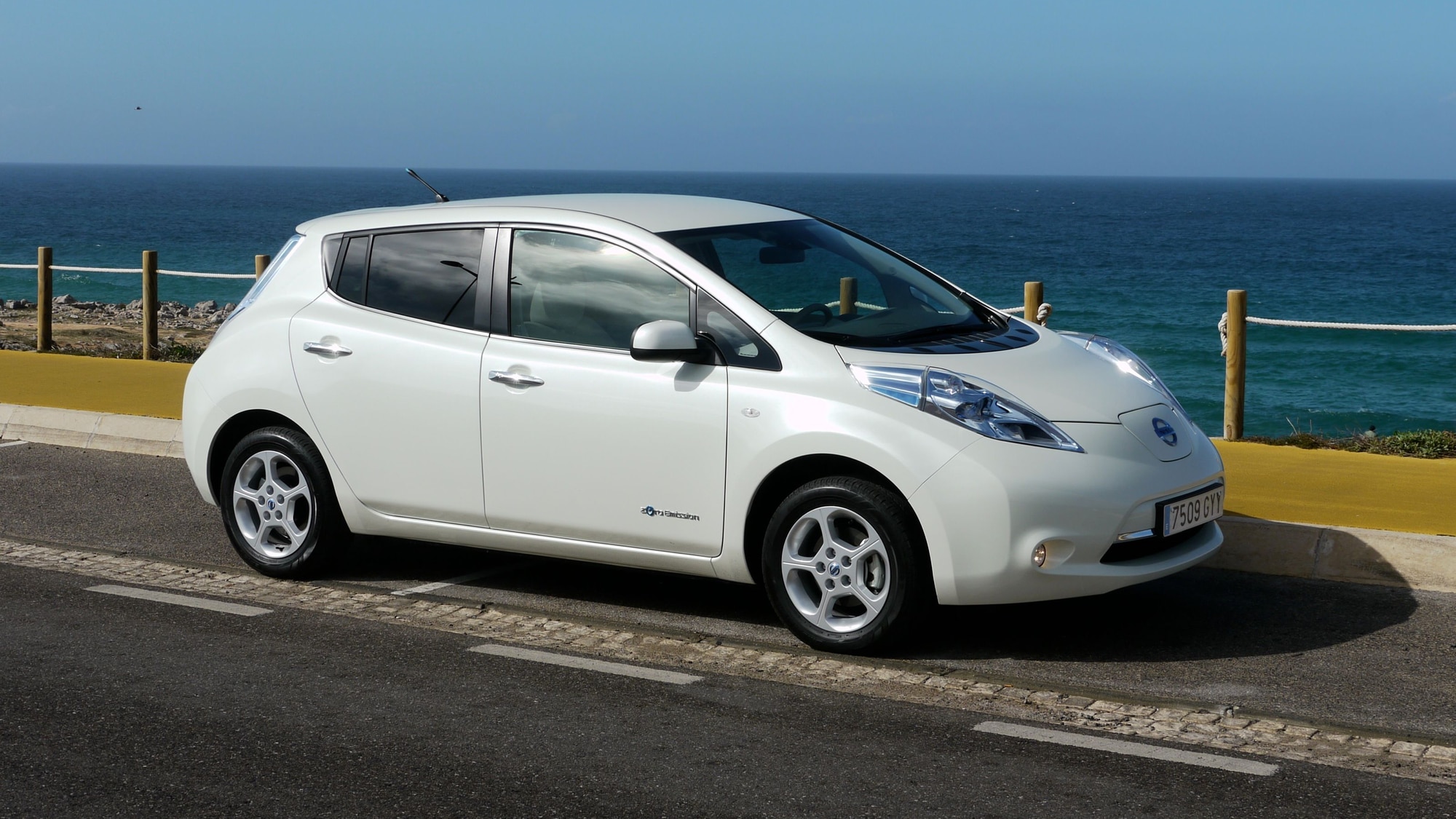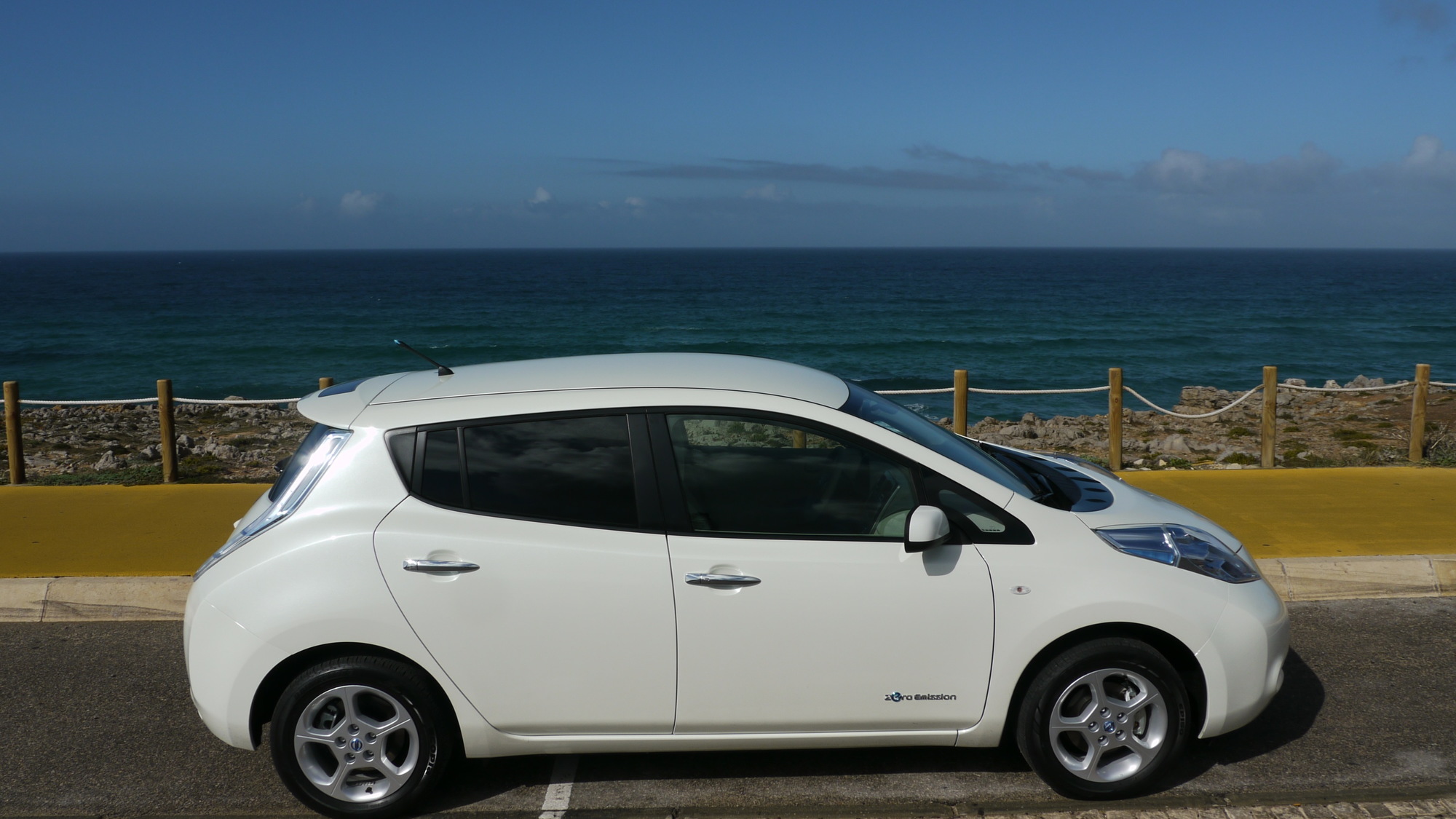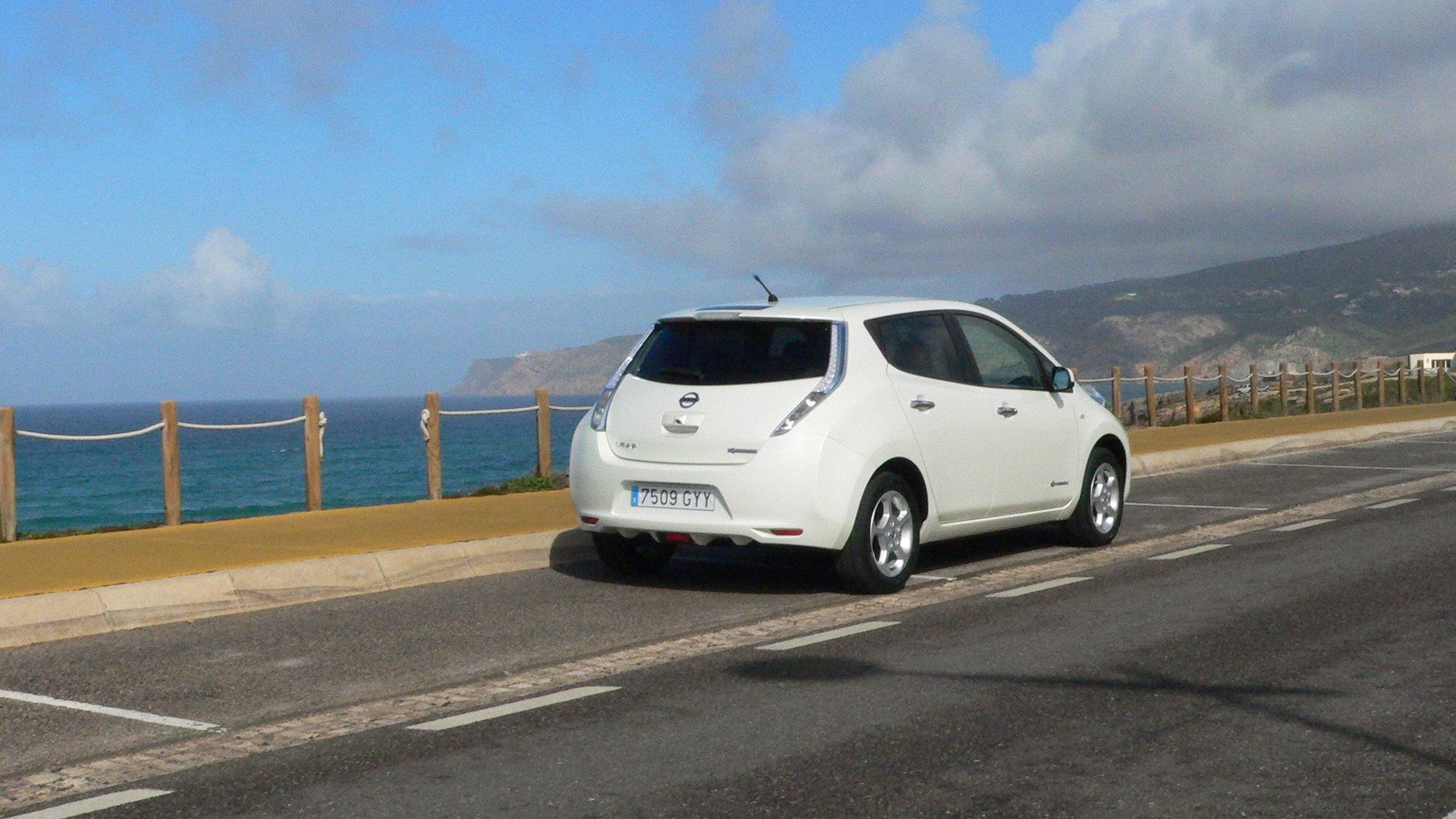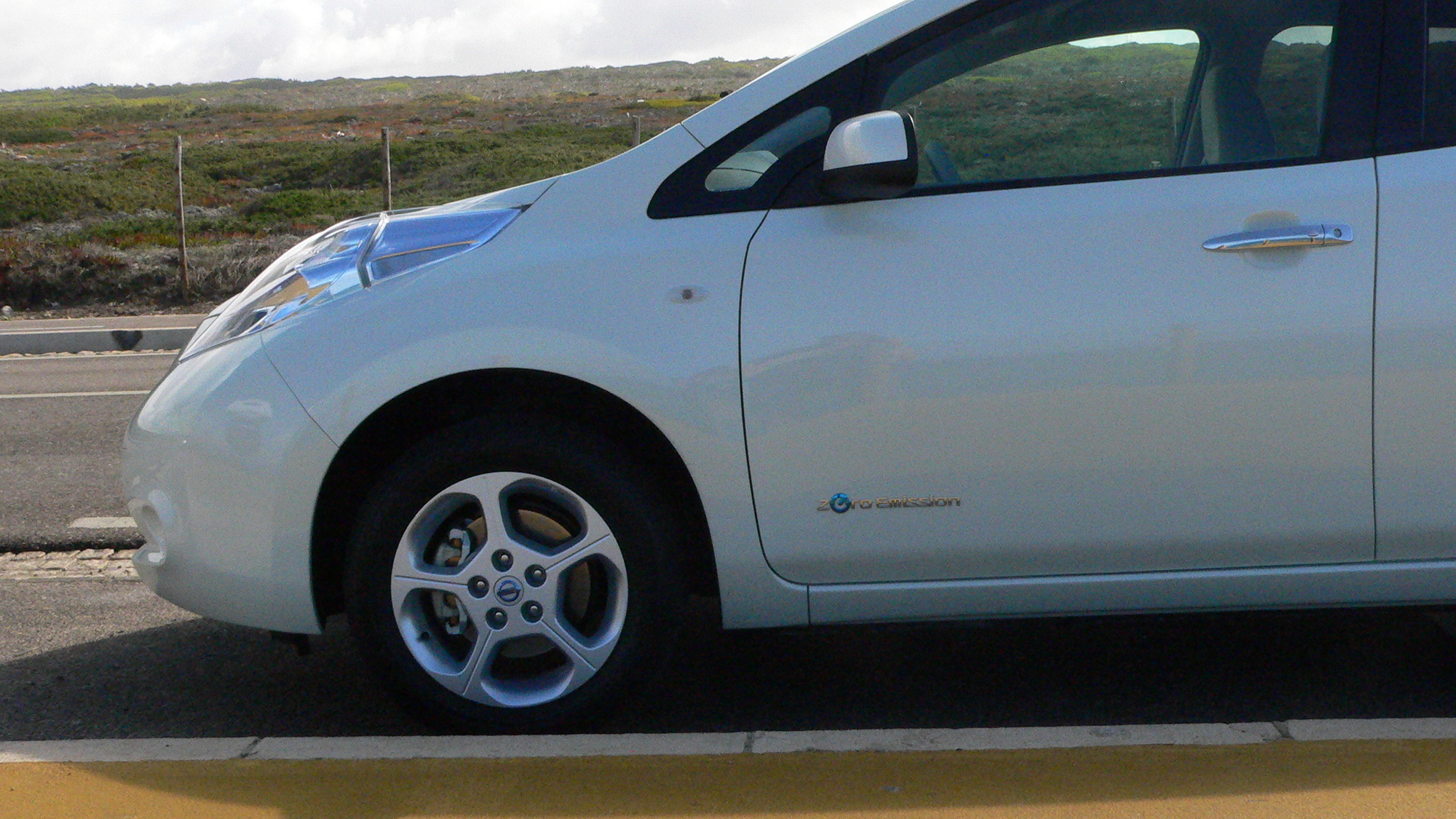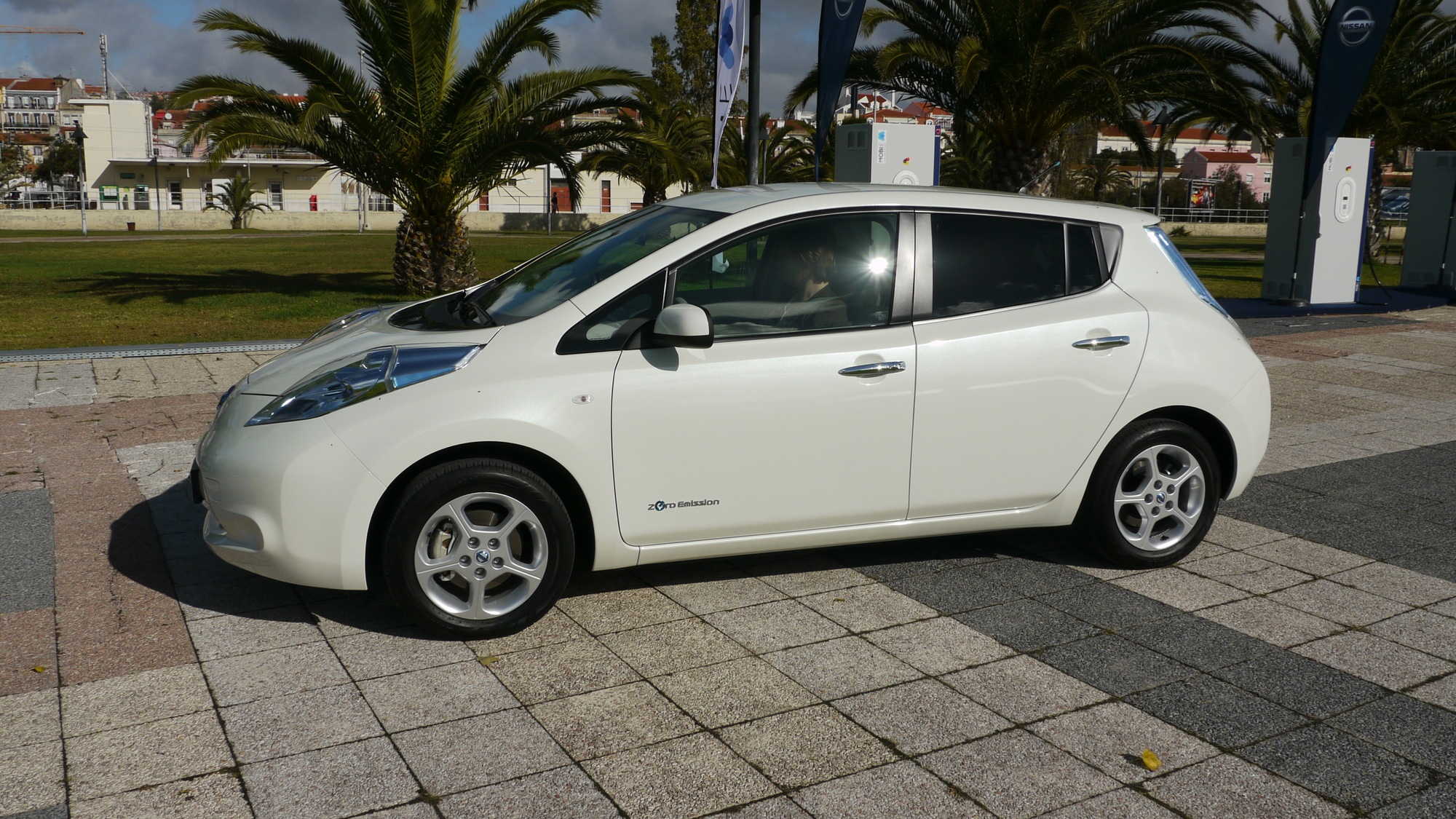It’s been a long time coming. More than 80 years, in fact, since viable electric cars were offered to U.S. car buyers.
Now, finally, at long last, it’s happened. The 2011 Nissan Leaf is the first practical, five-seat electric car—a full plug-in, running solely off grid electricity—that you have been able to buy since the late 1920s.
Sure, there was the General Motors EV1, subject of the much-discussed Who Killed the Electric Car? Sure, a handful of early-2000s Toyota RAV4 EV crossovers are still whirring around after almost a decade.

Green Car Reports 2011 Best Car to Buy Award
A real electric car
They no longer matter. They’re now incremental steps along the road. The next new thing is here, produced by a none-of-the-above carmaker. It’s really, truly, absolutely, positively a real car.
A real electric car.
The 2011 Nissan Leaf is our GreenCarReports Best Car To Buy for 2011 because it is the sole vehicle offered to U.S. buyers (this model year, by an established global automaker) that uses absolutely no gasoline.
There will be many more coming, but this year, the 2011 Leaf is the one and only.

2011 Nissan Leaf, Nashville, October 2010
The lowest carbon footprint
And, no matter how you run the numbers, it is the vehicle with the lowest carbon footprint of any new car sold today.
Just to be clear—because this question comes up often, as it should—even if you run your 2011 Leaf on the dirtiest coal-fired power grid in the U.S., its overall “wells-to-wheels” carbon footprint is significantly lower than any 25-mpg car in the market.
ND, WV, yeah, OK
There are a very few states—North Dakota, we’re talkin’ to you—where the grid power is so dirty that a 50-mpg vehicle is slightly better on carbon.
If you live in ND or WV or a few other states, you should buy a 50-MPG 2011 Toyota Prius rather than a 2011 Nissan Leaf if you want your transportation to have the lowest possible carbon footprint.
Except that you don’t have a choice, since Nissan isn’t selling the Leaf in your states during 2011. (So buy that Prius, and lobby your elected officials to clean up the local grid and require more renewable power.)
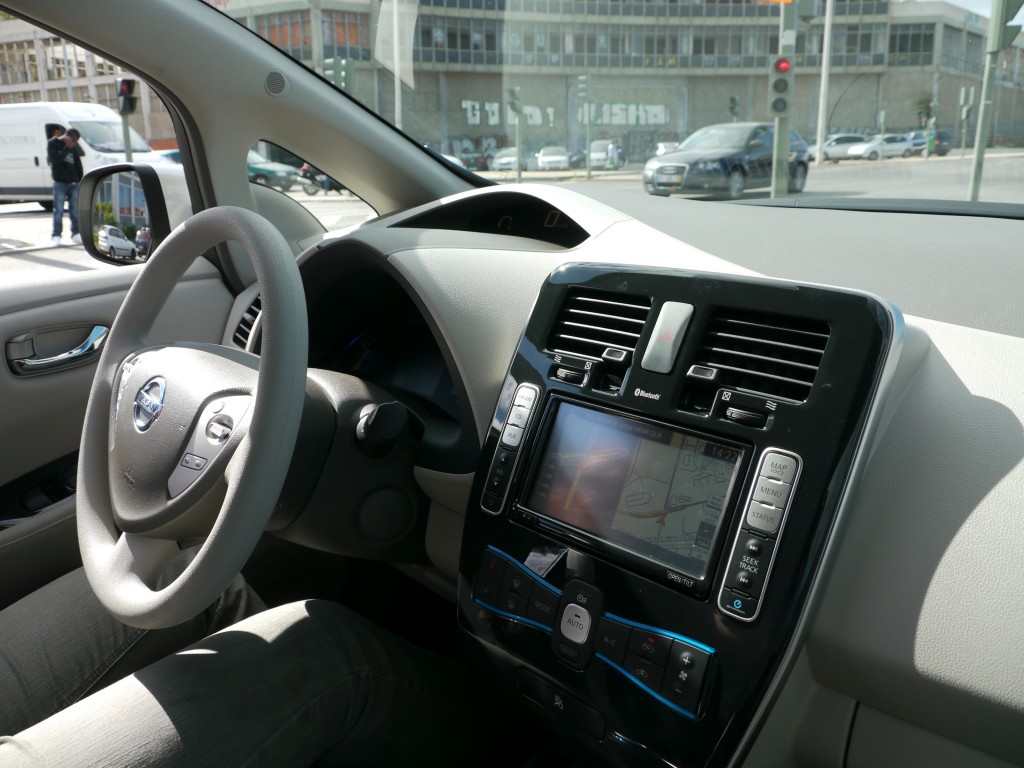
2011 Nissan Leaf
For everyone else—all of you buyers in the San Francisco Bay Area; the Los Angeles basin; Portland and Seattle; Austin, Texas; selected parts of the Northeast; and of course Nissan’s home state of Tennessee—the Leaf will roll out over the next year or so.
Your power is clean enough that buying a 2011 Leaf automatically lowers your carbon footprint far below those of your Prius-driving counterparts.
90 percent of your needs … is enough
No, the 2011 Leaf isn’t the answer to every family’s every need. But, again, that doesn’t matter.
Just as General Motors will tell you that more than 70 percent of U.S. vehicles do less than 40 miles a day, Nissan frequently points out that more than 90 percent of U.S. vehicles do less than the Leaf’s range of 100 miles per day.
Will the Leaf be right for every American household? Of course not. Neither the Toyota Prius hybrid nor the late and unlamented HUMMER H2 are right for every household.
But it will be right for more than 90 percent of most households’ needs.

2011 Nissan Leaf, Nashville, October 2010
Yep, a Leaf is a second car
So the Leaf is right for the millions of drivers and families who own more than one vehicle—the average U.S. household now owns more than two—and want to cut at least one car’s gasoline consumption to, ummmm, zero.
Replace your subcompact or your beater third car with a Leaf and, after you get used to it, all you’ll notice is how much nicer it is to drive. And how cheap it is to fuel up.
Plugging it in will become second nature. If you forget, the Leaf will remind you—politely—over your mobile phone.
But why not the Volt?
We anticipate a lot of questions about why we didn’t choose the 2011 Chevrolet Volt as our GreenCarReports 2011 Best Car To Buy.
We set up the award rules this way: GreenCarReports’ “Best Green Car to Buy Award” is chosen from a field of the most significant new vehicles with advanced fuel-saving technology, including stand-alone nameplates and single models alike. Editors judge the award using the same system sister site TheCarConnection employs to rate mainstream passenger cars and trucks, with environmental impact being the deciding factor in favor of the winner.
To be honest, we sweated over the choice this year. The 2011 Volt is, in some ways, a more appealing vehicle. And it’s truly a daring departure for the usually staid GM.
But in our reviews on TheCarConnection, the 2011 Leaf scored 8.2 out of 10 while the Volt scored 8.0. A close matchup, especially since those two were the only cars of any on sale in the country to achieve a perfect 10 in our new Green Rating score.
We like the Volt’s handling better, its high-line models are undeniably more luxurious inside, and the performance of its more powerful 111-kilowatt electric drive motor is better.

2011 Nissan Leaf
Volt: great capabilities, for some
But to provide the ability to exceed 100 miles, which qualifies it to be a household’s sole car—if you’re in a household where a four-seat compact costing $41,000 is a practical only car—the Volt uses gasoline.
True, it may use almost none, if you recharge a Volt every night and drive it only 40 miles a day. But we think the difference between 70-odd and 90-odd percent of your travels on grid power alone is a significant dividing line between gasoline and no-gasoline.
If it’s any consolation, the 2011 Chevrolet Volt was a very close second. We applaud the Volt team for their efforts, and they have absolutely nothing at all to be ashamed of.
After all: Would you have expected General Motors, just five years ago, to offer a car like the 2011 Volt for sale? Of course not.
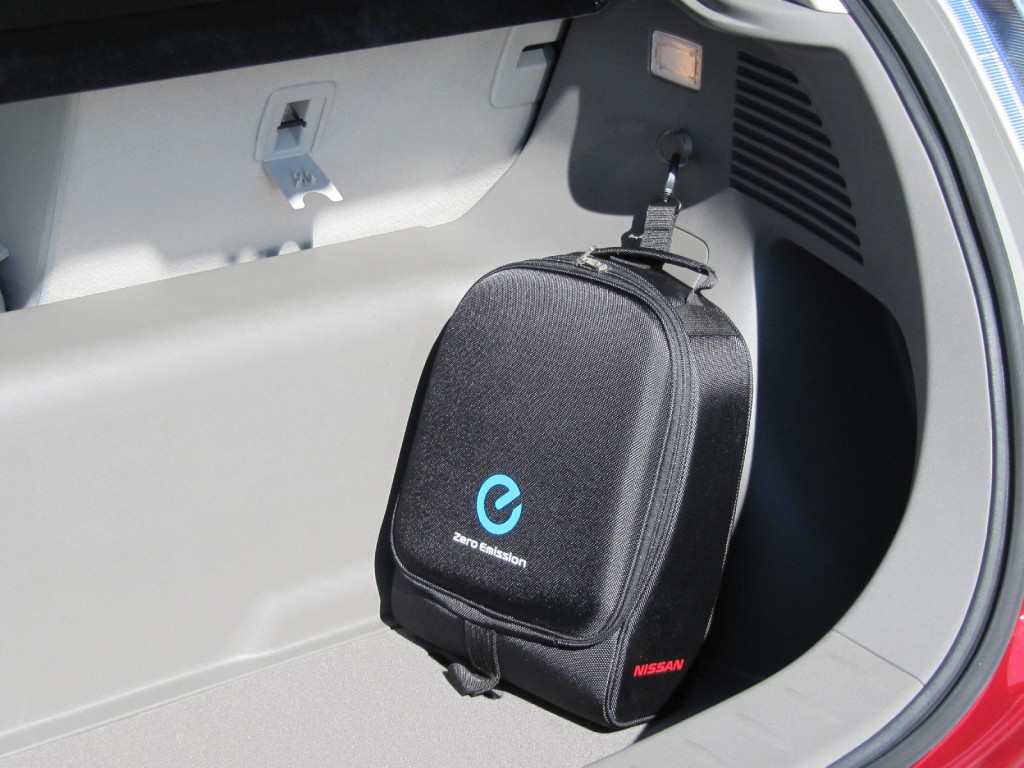
2011 Nissan Leaf, Nashville, October 2010
We continue to think the Volt is an excellent choice for that subset of households that have only one car, have less predictable duty cycles, or whose members can’t get past their range anxiety.
Chevy Volt, we salute you. And we award you and your creators an honorable silver medal. But for the gold, this year, it’s the Leaf.
The 2011 Nissan Leaf is the sole vehicle from a major automaker that lets its buyers dispense with gasoline, entirely and fully. That’s a radical concept, but it’s one we think will appeal to more buyers over time than the naysayers can imagine.
Green? Energy hawk? Or just cheap bastard?
In the end, it doesn’t really matter why you want to dispense with gasoline. Maybe you’re concerned about climate change and your carbon footprint. That makes you “green.”
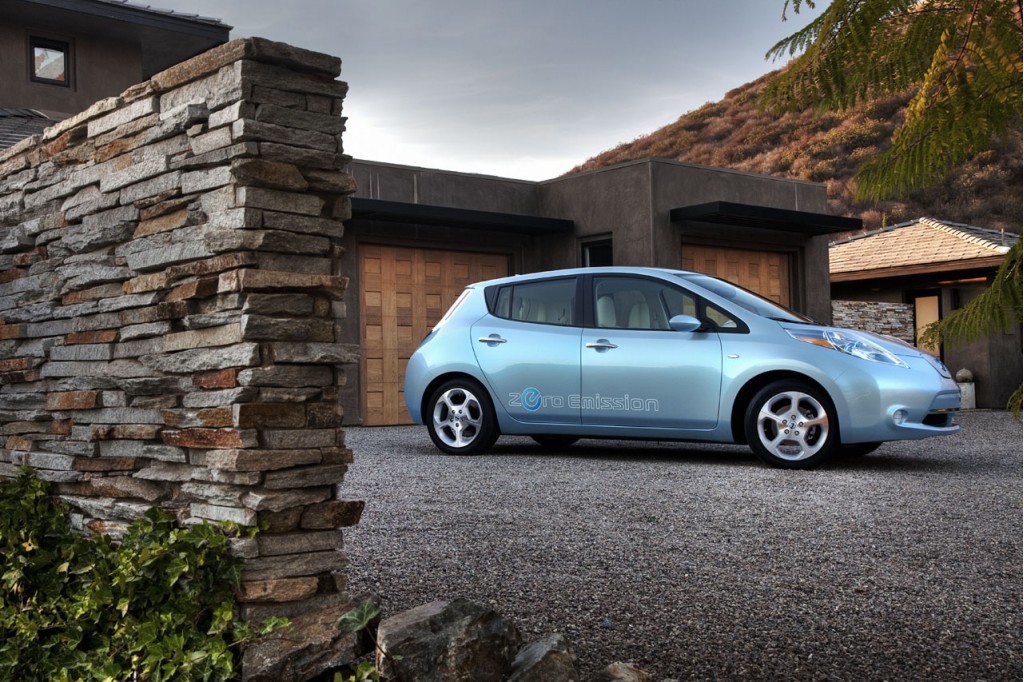
2011 Nissan Leaf
Or maybe you want to fight back against the continuing U.S. dependence on petroleum imported from nations—to put it bluntly—whose values are antithetical to ours. If so, you’re the “energy security” folks.
Maybe you like the lifetime cost savings of fueling your car at just one-third to one-fifth the per-mile cost of gasoline. You’ll see your payback over several years, even for this first generation of electric car. We fondly call you the “cheap bastard” buyers.
You might even be one of the folks who just likes electric cars for how they drive: lots of torque off the mark, no engine or transmission noises rising and falling, just smooth, continuous electric power.
And that’s not even to mention the folks who will hot-rod their Leafs, trading off range for power. That’ll come too.

2011 Nissan Leaf, Nashville, October 2010
First practical electric car
For all of you—and the millions more conventional, suburban American car buyers who aren’t even aware that electric cars have arrived—the 2011 Nissan Leaf will be the first car you can practically use in real life without pumping a single ounce of gasoline into it.
And that’s why the new Nissan Leaf is our GreenCarReports 2011 Best Car To Buy.
Congratulations, Nissan!
Now … what’s next?
